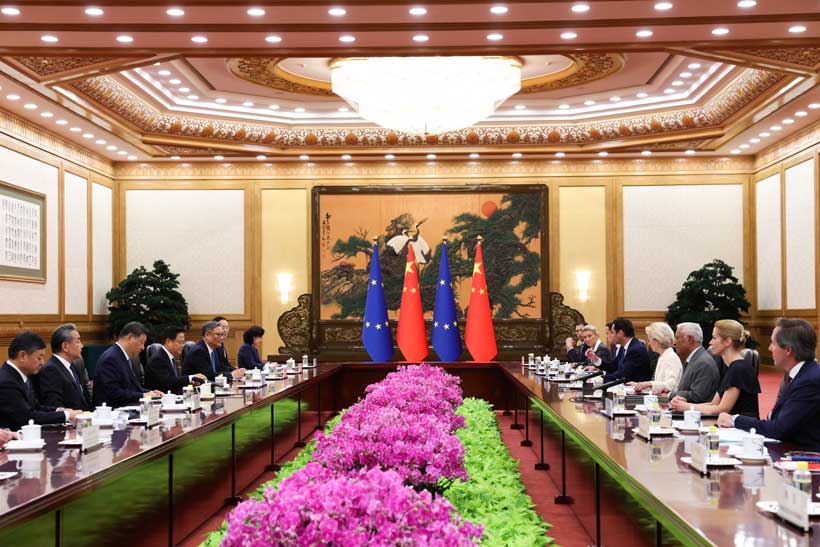As the European Union faces growing geopolitical instability, it remains woefully underprepared to engage with one of its most significant strategic partners—and rivals: China.
If a crisis involving China were to erupt tomorrow – over Taiwan, trade, or technology – Europe would lack the expertise needed to formulate a coherent political response. And that’s not a hypothetical risk. Building real capacity to understand and anticipate Chinese behavior takes years, not months. Europe is already behind—and catching up will require more than scattered academic interest or short-term policy fixes.
The lack of preparedness is not just a question of resources. Europe’s China expertise suffers from structural fragmentation. Scholars and analysts often work in silos, reporting to peers rather than policymakers. Knowledge rarely flows to where it is most needed. Even within national governments, those who understand China often lack access to the corridors of decision-making. They are rarely empowered to translate academic insight into actionable policy.
Compounding the problem is a culture of mistrust. Those who have developed deep ties with China – or who have lived and worked there – are often viewed with suspicion, as though expertise were synonymous with compromise. This paranoia is not only misplaced – it is strategically self-defeating. It cripples our ability to understand the world’s second-largest economy at the very moment when insight is most urgently needed.
There is a world of difference between studying China from afar and engaging with it on the ground. No textbook can explain how corruption functions in China—or how profoundly it differs from European norms. No lecture can convey the everyday influence of the Communist Party or the complexity of public attitudes toward governance. Real understanding comes from lived experience, professional insight, and the ability to connect fragmented data into a coherent, strategic picture.
Yet across Eastern Europe in particular, there is little institutional support for developing this kind of knowledge. While the EU boasts dozens of China studies programs, far fewer Europeans are actually studying in China. Field experience is scarce, mentoring networks are limited, and the infrastructure to translate knowledge into influence is largely missing.
Even European journalists stationed in China – few as they are – struggle to make their reporting count. Too often, their work vanishes into bureaucratic silos rather than feeding into policy conversations. The result is a dangerous asymmetry: China invests heavily in understanding Europe, while Europe invests minimally in understanding China.
To change course, Europe needs more than incremental improvements. It needs a coordinated, multidisciplinary approach to China that integrates academic, diplomatic, military, technological, and economic expertise. There is no such thing as a singular “China expert.” But there can be a China-competent Europe—if we choose to build it.
History shows how rapidly China can transform its strategic posture. In the mid-1990s, it shifted from operating a Soviet-era military to showcasing modern capabilities. During the 1996 Taiwan Strait Crisis, Beijing conducted large-scale exercises and launched ballistic missiles near Taiwan – clear signals of its growing ambitions. Such transformations unfold in just a few years. Those who are unprepared pay the price.
One troubling case still lingers in my mind: Huawei’s meteoric rise happened under the watch of MERICS, one of Europe’s premier China think tanks. Despite their deep expertise, even they struggled to shape German policy. Why? Because expertise without access is influence wasted.
Engaging with China will never be easy. Access to Chinese policymaking circles is notoriously difficult. But that is no excuse for inaction. Without sustained investment in networks, language training, policy bridges, and talent development, the EU risks being caught off guard – again.
The stakes are too high for complacency. China isn’t waiting. Why are we?
